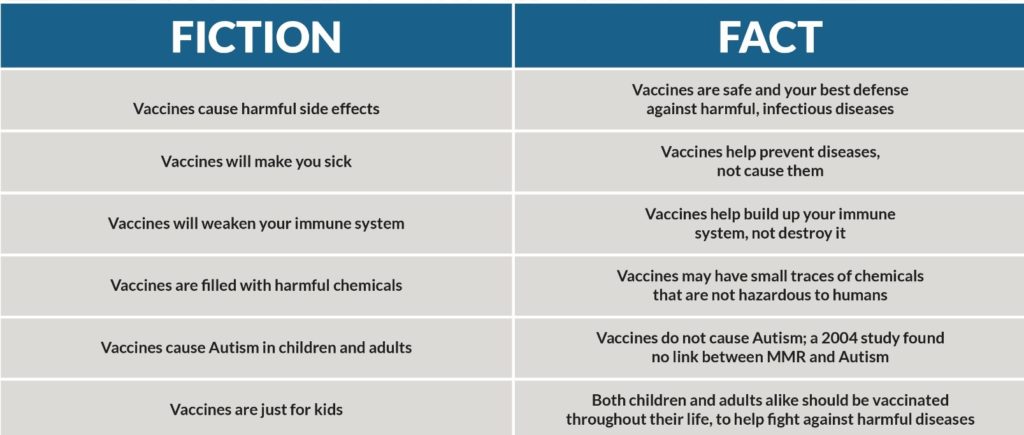Immunization Month
Why Immunize? The question that has caused so much controversy over the past few years.
The short answer – by getting immunized, you are helping to protect those in our community who are most vulnerable to various viruses. Young children, the elderly, and those who are struggling with compromised immune systems, are all at a higher risk of developing serious complications that accompany preventable diseases. With it being back-to-school time, it becomes especially important for everyone to receive their immunizations, as daycares, classrooms, and dorms all become a petri dish of bacteria due to constant interaction within a large group of people.
Stop The Leak
It is true that some diseases (such as polio and diptheria) are becoming more and more rare in the United States. This is because we continue to get immunized to protect ourselves from these diseases. It’s much like bailing out a boat with a slow leak. When we started bailing, the boat was filled with water. But everyone has been working together, bailing fast and hard, and now the boat is almost dry. We could say, “Good. The boat is dry now, so we can throw away the bucket and relax.” But the leak hasn’t stopped. Before long we’d notice a little water seeping in, and soon it might be back up to the same level as when we started.
Unless we can “stop the leak” (eliminate the disease), it is important to keep immunizing. The recent anti-vaccination movement has delayed the elimination of diseases as more of the population has decided to stop helping bail out the boat – allowing some viruses to seep back in.
Even if there are only a few cases of certain diseases today, if we take away the protection given by vaccination, more and more people will become infected and will spread disease to others. Soon we will undo the progress we have made over the years.*
Facts about Immunizations:
- Diseases are becoming rare due to vaccinations. However, it’s critical that we continue to immunize until the disease is eliminated.
- Vaccinations help to protect our children, their classmates, and their classmate’s families.
- Vaccines, like all medication, can cause a reaction. However, many children never have a reaction. For those who do, most reactions will be minor such as a sore leg, a slight rash, or a mild fever that goes away in a day or two.
- Vaccinations are one of the best ways to put an end to the serious effects of certain diseases.

We offer vaccinations daily, with no appointment needed. We provide influenza, pneumonia, shingles, hepatitis A, hepatitis B, diphtheria, tetanus, pertussis and meningitis vaccinations for ages 12 and over without a prescription. Our pharmacists can immunize anyone under age 7 with a doctor’s prescription.
Please feel free to contact us for any questions you may have regarding immunizations.
*cdc.gov
